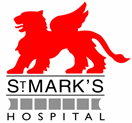- Reference Number: HEY636/2023
- Departments: Nutrition Support
- Last Updated: 30 June 2023
Introduction
This leaflet has been produced to give you general information on your treatment. Most of your questions should be answered by this leaflet. It is not intended to replace the discussion between you and the healthcare team, but may act as a starting point for discussion. If after reading it you have any concerns or require any further explanation, please discuss this with a member of the healthcare team.
Oral Health Advice for People with Intestinal Failure
Your teeth enable you to chew and digest food, talk clearly and help to give your face shape. Good oral health and your smile are great assets and because this is so important, it makes sense to give your mouth the best care possible.
The aim of this leaflet is to offer you advice on what you and your dental and healthcare teams can do to help you improve your oral hygiene. It addresses the things most likely to have a damaging affect on your mouth and/or teeth and provides information on what you can do to minimise these effects. To help with your recovery you may be on high calorie nutritional supplements (‘sip feeds’) or encouraged to eat energy rich foods throughout the day. The sugar content and frequency of these foods and drinks increase the risk of tooth decay.
What you can do:
- Ensure you maintain good oral hygiene.
- Avoid sticky or acidic sweets.
- Where possible have energy dense foods shown to reduce the risk of tooth decay, such as unsweetened dairy products, in particular, cheese.
- Try to choose non-sticky high energy foods that clear your mouth easily as these are less damaging to teeth than sticky foods that hang around for a long time.
Dehydration
You may feel dehydrated and have a dry mouth. Saliva normally keeps your mouth moist, protects it from infection and irritation and is essential to efficient swallowing, eating, speaking, and successful denture wearing. If you have a dry mouth you have a much greater risk of tooth decay and Oral Candida infection (see page 4 for more details on Oral Candida infection).
What you can do:
- Chew sugar-free gum as this can help relieve dry mouth.
- Consider using a small atomiser spray filled with water (these can be bought from a chemist) to moisten your mouth.
- Use soft yellow paraffin (but not if you are having radiotherapy) and/or use your own lip balm product to prevent dry, cracking lips.
- Use a mouthwash but make sure that it is alcohol free. Fluoride mouthwashes can be used according to the manufacturers’ instructions but should be used at a different time to brushing.
- Avoid acidic drinks like fruit juices or carbonated drinks as they can damage your teeth by causing acid erosion. This in turn, can cause sensitivity to hot and cold things and make your teeth more prone to decay.
- If you drink fruit juices or fizzy drinks consider a drinking straw (not a sports bottle) to reduce their contact with the surfaces of your teeth.
Your medication
Many of the medicines you take have the uncomfortable side effect of a “dry mouth”. Syrup and lozenge medicines can be very high in sugars. At night, it is natural for saliva flow to reduce.
What you can do:
- Ask your medical team for sugar free medicines whenever possible.
- Ensure you clean your teeth with a fluoride toothpaste last thing at night and try not to eat, drink or take medicines after this unless absolutely necessary.
Your Dental Team
You are advised to see your dentist regularly. The dentist needs to know about your medical condition, in particular:
- You have a central venous catheter that must be protected from infection.
- If you are taking medicines to thin your blood, e.g. Warfarin, Clopidogrel, Aspirin.
- If you are taking bisphosphonate medicine, e.g. Calcichew, Adcal.
What you can do:
- Continue to take all your medicines as normal prior to your dental visit.
- Keep your dentist informed of your current medical condition and all the medications you are taking so that they can advise you of the best way to maintain your oral health.
- Ask your medical team if you need antibiotics before any dental care beyond a visual ‘check-up’.
Smoking
Most people are now aware that smoking is bad for your health. It can cause many different medical problems, smokers heal more slowly too. However, many people do not realise the damage that smoking does to their mouth, gums and teeth. Smokers are about four times more likely than people who have never smoked to have advanced gum disease. Because smoking damages the small blood vessels, you may not get the tell-tale sign of bleeding gums to warn you of gum disease and you may not be aware.
What you can do:
- See your dentist/dental hygienist regularly for a check-up.
- Speak to your medical team or doctor about smoking cessation programs.
Daily dental care
It is important that you have a good routine to keep your teeth and gums healthy both while you are in hospital and back at home. Poor oral health is a possible source of general infection, which you need to avoid. A simple routine of brushing your teeth twice a day with fluoride toothpaste and cleaning between the teeth, good eating habits and regular dental check-ups can help prevent most dental problems.
Small changes in your daily routine can make a big difference in the long run. Night-time routines around Home Parenteral Nutrition (HPN) feeding are demanding but remember that a night time oral hygiene routine is also important.
What you can do:
- Ensure you brush your teeth thoroughly for two minutes, twice a day using a fluoride toothpaste.
- Always brush your teeth last thing at night.
- Use a small to medium size toothbrush (or electric brush if you prefer) with soft to medium multi tufted, round-ended nylon bristles and use small circular movements to clean your teeth. Make sure you change your toothbrush regularly, at least every 3 months.
- Clean between your teeth using dental floss or interdental brushes.
- Rinse your denture after meals. Clean the denture and leave it out of your mouth at night, if practical.
- If you wear a partial denture (plate) make sure to clean the area around the clasps and your own teeth, as trapped food particles and bacteria may cause these teeth to be more susceptible to decay.
- Visit your dentist regularly, as often as they recommend.
Oral Candida
Candida normally lives harmlessly in healthy mouths. Conditions which may increase the risk of oral thrush are; a dry mouth, taking antibiotics, steroid tablets or inhalers, using antibacterial mouthwash frequently, wearing dentures or a dental plate (especially if not well fitting, not in good condition, not kept clean and not taken out at night).
How do you recognise Candida?
The usual signs of oral Candida are white spots or red patches developing inside the mouth. If you are a denture wearer, the area the denture covers may look red and shiny. Oral Candida is not usually painful but you may get sore, cracked, red areas at the corners of the mouth.
What you can do:
- Check your mouth regularly for any signs of candida infection.
- If you are concerned, visit your doctor or dentist for a check-up, advice and treatment. This is straightforward, using drops, lozenges or gels to combat the fungal infection.
- Take steps to help prevent oral candida infection occurring/recurring – your dental team will advise you on what you need to do.
How to find an NHS dentist
There are a number of ways of accessing NHS dental treatment. They include using a high street dentist (general dental practitioner) and using the dental services provided for people with complex medical conditions by your area’s Community Dental Service. Make sure you tell them about your medical condition, treatment and medication: see them regularly and encourage them to contact your medical team if they need further information about your health.
If you do not know how to find an NHS dentist please contact the NHS Choices website at www.nhs.uk. They hold a list of NHS dentists in your area.
Please note: This information is not a substitute for dental/medical attention, diagnosis or treatment. You are encouraged to contact your dental/health care provider for specific advice and care.
Should you require further advice on the issues contained in this leaflet, please do not hesitate to contact the Specialist Nurses on the mobile phone number tel: 07827 937025.
This leaflet was produced by the Nutrition Team, Hull and East Yorkshire Hospitals NHS Trust and will be reviewed in June 2026
St Marks Hospital has granted permission for Hull and East Yorkshire Hospitals to use the information in this leaflet which they have devised.


